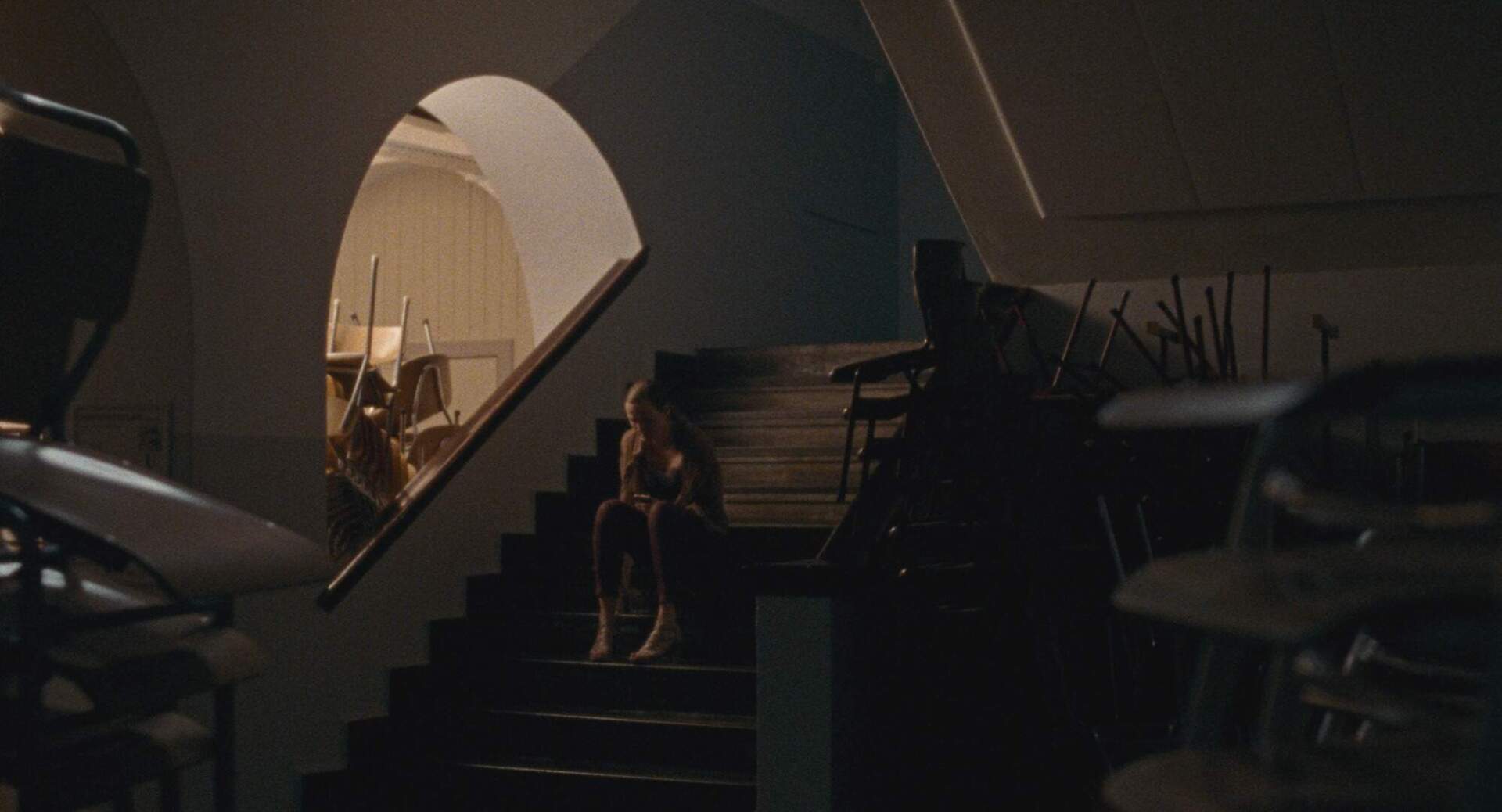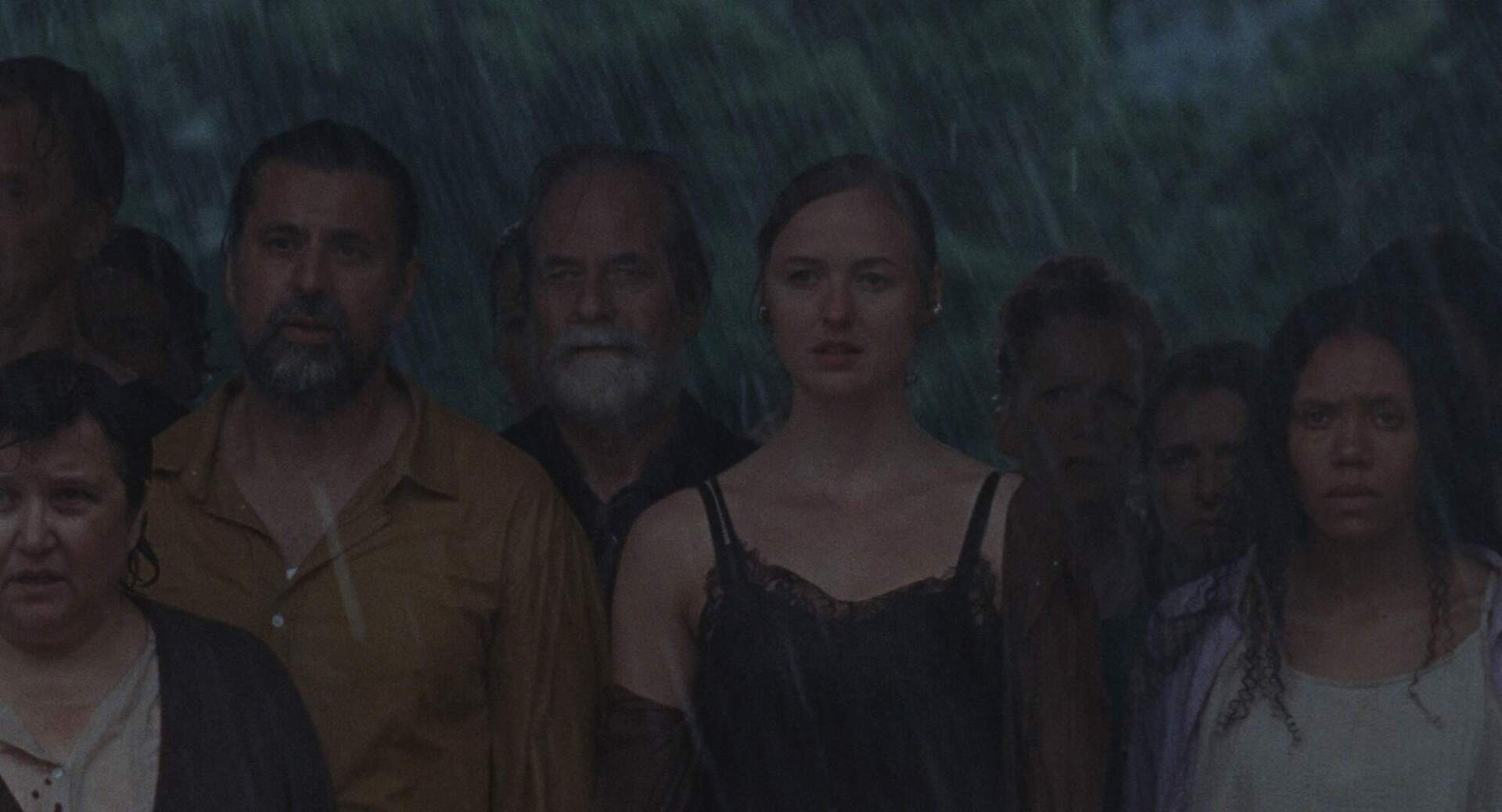Advertisement
Review
In 'Armand,' a fraught parent-teacher conference becomes increasingly unhinged

“It’s Armand again,” is all the teacher needs to say, and the rest of the faculty nod their heads in understanding. They know him well, this boy, the one with the famous actress for a mother and a dad who died in a mysterious accident. He’s always causing problems — somewhat understandably, I suppose — saying words a 6-year-old shouldn’t know, his behavior leading to meetings like the one going on down the hall. They’ve heard that the actress has come to the school this time, along with two other parents of a child to whom Armand might have done something bad in the bathroom.
Of course, it goes without saying that this is all to be kept quiet. We don’t really know anything, least of all what happened between the two boys. But what are you going to do? It’s Armand, again.
We never do actually meet the title character in writer-director Halfdan Ullmann Tøndel’s formally dazzling debut, which won the Caméra d’Or for best first feature at last year’s Cannes Film Festival. “Armand” is structured around a fraught conference between his mother Elisabeth (Renate Reinsve) and the two parents of a boy Armand is accused of assaulting in the restroom. Presided over by a grave, nervous administrator (Øystein Røger) being so careful with his words that he doesn’t say anything at all, the meeting is a marvel of that modern, slippery doublespeak with which everyone tries to say all the right things without actually committing to anything: authority without responsibility.

The parents, played by Ellen Dorrit Petersen and Endre Hellestveit, have known Armand for longer than we at first realize. They’ve known Elisabeth for even longer, though the nature of their relationship takes a bit of time for us to piece together. Tøndel’s screenplay withholds information in a deliberately disorienting manner, with revelations parceled out so that they keep recontextualizing scenes while we’re in the middle of them. Every time you think you have a handle on the movie, it wriggles out of your reach and becomes something else entirely.
It's invigorating — if occasionally annoying — being thrown into the deep end like this. You may spend a fair amount of “Armand” trying to determine exactly what kind of movie we’re watching here. Tøndel keeps us off-balance from the beginning. The close-ups are a little too close, the sound design a little too aggressive for this placid, pastoral setting. The school’s walls are lined with vintage class photos of past pupils — including all our major characters — so that the place itself feels almost haunted, with a broken fire alarm system that rings of its own accord and a secretary suffering a nosebleed of increasingly inundating proportions.
If the story’s setup sounds familiar, that’s because it recalls Yasmina Reza’s great 2008 play “God of Carnage,” in which James Gandolfini starred on Broadway as one of four parents forced into a similar meeting about their children’s playground behavior that devolved into a marriage-shredding farce. (Bragging rights: I was in the audience when this happened.) Roman Polanski made a hilarious film of it in 2011 called simply “Carnage,” featuring a Kate Winslet performance so funny I still smile whenever I think of it. There was also last year’s grimly comic Oscar nominee “The Teachers’ Lounge,” in which these kinds of classroom accusations turned into a Kafkaesque quagmire of good intentions gone to hell.
Advertisement
“Armand” brushes up against a lot of the same ideas, but in a looser, more freewheeling fashion, revealing a grasp of reality that’s about as tenuous as that of its central characters. The movie starts out unsteady and becomes increasingly unhinged as the running time wears on. After some telltale slips in the early going — like Reinsve falling into a mini Bob Fosse dance routine while wandering the halls — “Armand” makes its big break during the meeting, when Elisabeth begins to laugh inappropriately, finding herself unable to stop for seven solid minutes of screen time.

It's an astonishing scene, not to mention an almost superhuman feat of endurance-acting by Reinsve. It’s hard enough to fake a sincere-sounding laugh, let alone do it for the entire length of “Hey Jude.” The Norwegian starlet stole our hearts as the ultimate misfit millennial in Joachim Trier’s “The Worst Person in the World,” but here plays a character much more calloused and harder to crack. Glammed out and towering over the rest of the cast in platform heels, she’s like a Norse goddess collapsing from within. Tøndel lets entire scenes play out with the camera locked on her face, because why wouldn’t you? (When visiting the Coolidge Corner Theatre for an advance screening in early February, the director told the audience that the laughing scene took them 10 hours to film, after which he gave Reinsve the next five days off.)
You’ve got to have a lot of confidence to come up with a scene like that, and even more to pull it off in your first film. But then it’s not surprising that Tøndel has got such swagger, given that he’s the grandson of Ingmar Bergman and Liv Ullmann, which has got to be the most impressive pedigree of any cinema nepo baby since maybe Jean Renoir? (He’s definitely the coolest nepo grandbaby since Anjelica Huston.) “Armand” is awesomely audacious and drunk on its own technique, though sometimes you might wish there was a bit more to the movie than audacity alone. It’s a powerful cinematic experience that at 117 minutes can also wear a mite thin.
By the time Tøndel abandons language altogether and lets the central conflicts resolve via interpretive dance, you can sort of understand how he’s so fed up with the characters’ institutionalized blather that movement means far more than their empty words — which is why he drowns out the dialogue with a thunderous rainstorm. You might also wonder if he’s being a little too clever for his own good and if it might not be time to wrap things up already. But what can you do? It’s “Armand” again.
“Armand” opens at the Coolidge Corner Theatre on Friday, Feb. 14.
